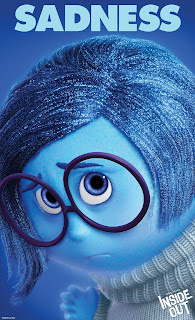 Dope is about three highschoolers in Inglewood who are '90s geeks. They are, in other words, obsessed with '90s-style clothes, music, movies, etc. But these kids are geeks. They get good grades and get beat up in school. So, of course, they find their way into a ridiculous party at some point and then the eponymous dope gets stuck in a backpack. What is a group of nerds supposed to do with a couple of pounds of molly? This is the plot of the film, and Dope charts the changes that happen to this group of friends and the hilarious happenings of the people around them as they try to get out of the situation with their lives.
Dope is about three highschoolers in Inglewood who are '90s geeks. They are, in other words, obsessed with '90s-style clothes, music, movies, etc. But these kids are geeks. They get good grades and get beat up in school. So, of course, they find their way into a ridiculous party at some point and then the eponymous dope gets stuck in a backpack. What is a group of nerds supposed to do with a couple of pounds of molly? This is the plot of the film, and Dope charts the changes that happen to this group of friends and the hilarious happenings of the people around them as they try to get out of the situation with their lives.I don't have much to say about Dope, in all honesty, because the whole thing just works so well. There are plenty of parts where I thought director Rick Famuyiwa could've tightened things up or taken a different emotional approach, and a couple of performances that I thought were terrible (Roger Guenveur Smith wears some bizarre facial hair and giving the weirdest performance in the film), but all must be forgiven, because if Famuyiwa's directing is not great, his screenplay sure is. This screenplay is excellent. Just. Excellent.
And the acting, for the most part, is also excellent. The cast is headed by Shameik Moore, and he is supported by Tony Revolori and Kiersey Clemons. This trio has great chemistry and impeccable timing, and they are hilarious from the very beginning of the film. But there are some other really superb performances in Dope, too. Rapper A$AP Rocky gives a beautiful performance as the drug kingpin, and Quincy Brown (Sean Combs' son) is really funny as a wealthy drug-dealer's kid. In any case, the whole thing is filled with hilarious and poignant moments.
Comparisons to last year's Dear White People are inevitable with Dope, mostly because both films are interested in thinking about what blackness is, how blackness is perceived and how black people experience the constant and difficult racialization that the world throws at them. But while DWP is interested in lecturing us about how lots of black people don't fall in with black-people stereotypes (really??), Dope is much more interested in dealing with the way stereotypes materially affect black lives. Dope is much much smarter than DWP, and it is also much much funnier. DWP was filled with righteous indignation; this is, of course, merited, but I did not exactly find it enjoyable to watch in its stridency. Dope alternates deftly between being quite serious and laugh-out-loud hilarious. Famuyiwa calibrates this tone very well (if not always perfectly)m and the audience can transition from laugh to gasp quickly.
Both DWP and Dope are also heavily indebted to Spike Lee's filmmaking, and Dope's penultimate sequence (the protagonist's application letter to Harvard) is a Spike Lee flourish that is hard hitting, excellent, and tough as nails.
Just go. You will laugh and you will love it. It is smart and funny and intense and sexy and it just plain works.








